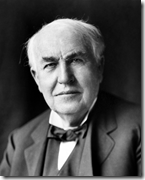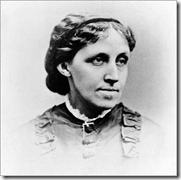Jackie Zimmerman of Time’s Money section writes about four things to consider before dating a coworker.
The last coworker who I dated was my wife. When we started dating back in March of 2004, she was teaching in a classroom one door down from mine. A friend and colleague now teaches in Elysha’s old classroom, and though Elysha’s been gone from that classroom for more than five years now, I still think of it as ‘Elysha’s room.”
I still leave school almost everyday through that classroom’s outer door, even though it often means going out of my way to do so. Before I push that door open and step out onto a wooden ramp, I always pause and purposefully recall something about those days long ago when Elysha and I worked together and spent so much of our time side by side.
I remember so I won’t forget. I remember because I was one of the best times of my life. I remember because it makes me smile every time even though is also often makes me sad, too.
Some couples could never work together. Many couples, perhaps. Elysha and I loved working together. It made my days brighter and better. I’m always hopeful that someday, we may be able to work together again.

In reading through Zimmerman’s four suggestions, it looks like Elysha and I did well when we dated (and married) as coworkers.
1. Avoid Getting Involved with the Wrong Person
Zimmerman’s suggestion pertains to dating people in positions higher up the corporate ladder. Though I always thought of Elysha as unattainable in every sense of the word, we were both teachers when we started dating, with no power over each other.
2. Know Your Company’s Policy Before the First Date
Before I dated Elysha, I had dated another colleague at the school and had already checked with my principal to be certain that there were no policies against it. He told me to make sure that if things didn’t work out, we ended our relationship amicably.
Not exactly a policy, but a good suggestion.
Thankfully, I have always been highly skilled at ending relationships. I’m friendly with almost all of my ex-girlfriends. In fact, the colleague who I dated before Elysha remains friends with me to this day, and in July, I will be the DJ at her wedding.
Still, I thought it was important to keep my principal informed when I was dating someone at work, so on April 1, 2004, as he crossed through the school auditorium, I told him that I was dating Elysha.
“Ha ha,” he said. “April Fools.”
“No, we’re really dating,” I said. “I’m serious.”
“Yeah, yeah, yeah,” he said, walking across the auditorium and out the door. “You and Elysha dating. Right.”
I have no idea when he realized that I wasn’t joking, but he was the person who married us two years later.
3. Consider the Worst-Case Scenario
Zimmerman suggests that you take careful stock of the person you are considering dating. If you break up, is this someone you can trust? Someone who you want potentially influencing your career? Could you still work together afterwards?
Honestly, this wasn’t even a consideration when Elysha and I began dating. She practically moved into my apartment immediately, and three months later, we had an apartment of our own.
Six months after that, we were engaged.
Even before we started dating, on one of those late night phone calls that people who are falling in love tend to have, she told me that if we ever started dating, she knew that we would never break up.
A bold move, I thought at the time. And my heart soared.
I had also known Elysha for almost two years before we started dating. We began as colleagues and eventually became friends. Close friends. So I knew her well. I knew we would never break up, but I also knew that if the unthinkable happened. we could remain friends.
4. Remember that During Business Hours, Work Comes First
Despite one lunatic claim that this wasn’t the case, Elysha and I always took our jobs seriously and never placed our relationship ahead of our responsibilities. When you’re a teacher dealing with students and their futures, this is not hard to do.
That said, it doesn’t mean that our romance didn’t find ways into the workplace. I purchased her engagement ring online with a committee of fellow teachers after work one day in a first grade classroom. I plotted my proposal with a colleague in the office of our curriculum specialist. I was known to leave her notes on her desk during my lunch hour, and at least once, I sent three dozen roses to her classroom.
One dozen per hour for three hours.
We kept our relationship a secret from our students for quite a while, but one day, after Elysha’s students saw a fairly innocuous note from me on some chart paper, one of them asked, “Are you and Mr. Dicks dating?”
She admitted it. Happily. Over the course of a school year, your students become as close to you as any of your friends or family. At least that’s the way it’s always been for us. Letting them in on our secret was so much fun.







